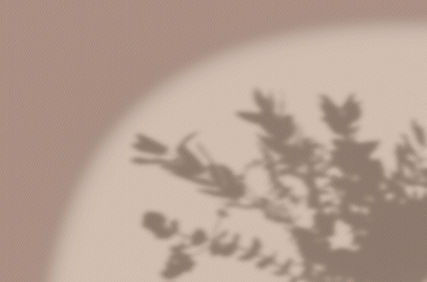
バルジョナ・オータム
Coursework Samples
Below are six coursework samples from the classes I have taken. Each sample is linked to the bolded underlined titles. These samples demonstrate my Japanese, my understanding of Japanese culture, and my appreciation of Japanese arts.
Letter to the Editor
This paper was for my Japanese 3060 class. In this essay, I talk about how AI art does more harm than good for artists and people wanting to get into the realm of art. Here, I demonstrate how to provide an argument in this paper. This is still in progress.
My Favorite Dish
This was a presentation for my Japanese 3060. In this presentation, I explain how to bake macarons alongside small tips while baking them. Here, I demonstrate how to give and follow instructions.
Late Spring Analysis
This paper was for my Japanese Film class. Here, I critically analyze the Noh scene in Ozu Yasujirō’s Late Spring. In this scene, I talk about the use of duration of close up shots and how these shots serve as a kind of climax that will build up for prior and later scenes.
Anthropology Research
This is a research project focusing on Japanese second language acquisition my partner and I did for our ANTH 3710 class. We revolved our findings around how Japanese language learners are socialized into proper Japanese language usage within speaking communities and our respective classes. I wrote up the fieldwork, methods, and ethical issues, the Japanese language learner survey, and the first paragraph for Observations of Japanese Language Classes.
Japanese Honorifics
This was for my Japanese Linguistics class abroad. In this paper, I focus on the different kinds of honorifics in the Japanese Language such as bikago, teineigo, sonkeigo, and kenjougo. I explain when each of these honorifics and the context of when these honorifics should be used.
Kafka on the Shore
This paper is for JAPN 4010. Here, I talk about how the presentation of fate dictates a character’s belief of whether or not fate is something that cannot be avoided or if fate is something in their owns hands.
Japanese Courses
Below are courses I took towards my major. After taking these courses, I have a better understanding of the Japanese language and an appreciation of Japanese fine arts.
JAPN 1010 + 1020
Conducted in English and Japanese. This course is an introduction to the Japanese language. Students learn how to read and write Hiragana, Katakana, and beginner level Kanji. Coursework is given in English and Japanese.
JAPN 2010 + 2020
This course starts to introduce students to intermediate level of Japanese. Students start to learn more complex kanji tri-weekly. Students are introduced to honorifics and how to speak politely with different forms. Coursework is given in Japanese.
JAPN 3060
Conducted in predominately Japanese. Students expound more on the concepts taught in Japanese 1010 through Japanese 2020. Students are expected to learn how to hold discussions, give instructions, and how to make their speech more natural. Coursework is given in Japanese.
JAPN 4010
Conducted in English. In this class, we read from authors such as Osamu Dazai, Natsume Soseki, and Haruki Murakami. After taking the course, we are expected to grow an appreciation and understanding of trends in writing within Japanese Literature. Coursework is in English.
JAPN 4560
Conducted in English. In this course, students study films created by Japanese filmmakers such as Ozu Yasujiro, Kenji Mizoguchi, and Akira Kurosawa. We learn to analyze and understand the relation between Japanese filmmaking and Western filmmaking. Coursework is in English.
JAPN 3980
Directed reading conducted in Japanese. In this course, we practice and enhance reading in Japanese and test taking skills by reading at the N2 level. We meet and read five passages together once a week. All passages, questions, and answers are in Japanese.
Psychology Courses
Below are courses I took towards my minor in psychology. After taking these courses, I have a better understanding of behavior and different kinds of temperament and motivation.
PSYC 2010
In this course, students are introduced to a general overview of behavior. Here, we learned the blueprints of social behavior, the way people may think, motivation, and human development. After finishing the course, students are expected to apply the basics to more complex topics.
PSYC 3240
In physiological psychology, students learn about neurology, biology, and psychology more in depth. Students learn how these three subjects come together in psychology.
PSYC 3400
In this class, we focused on the lifespan of a human. We talk about topics revolving around personality, how our brains change as we grow, how our experiences may shape us into how we behave and interact with others, and the different stages of how we mature both mentally and physically.
PSYC 3700
In this course, were learn about personality. We talk about the general trends and themes we see within personality along with different kinds of temperament, how we may cope when given a stressful input, and motivation. Additionally, we learn about how different situations and living conditions may affect the personality.
PSYC 3830
In Abnormal Psychology, we learned about the mental disorders seen in the DSM-5. We learn about the signs of these mental disorders in childhood and in adults along with how they are treated and diagnosed.
PSYC 4150
In Systems and Theories of Psychology, students essentially learn of the history and the background of psychology and how certain theories came to be. We learn the history and background of psychologist, and how and why psychologists took the approaches they did alongside the conflicts that came with it.
Study Abroad Courses
Below are classes I took while I was in Japan. Most of these classes gear more towards Japanese history and culture, as I wanted to be able to experience what I was learning abroad.


